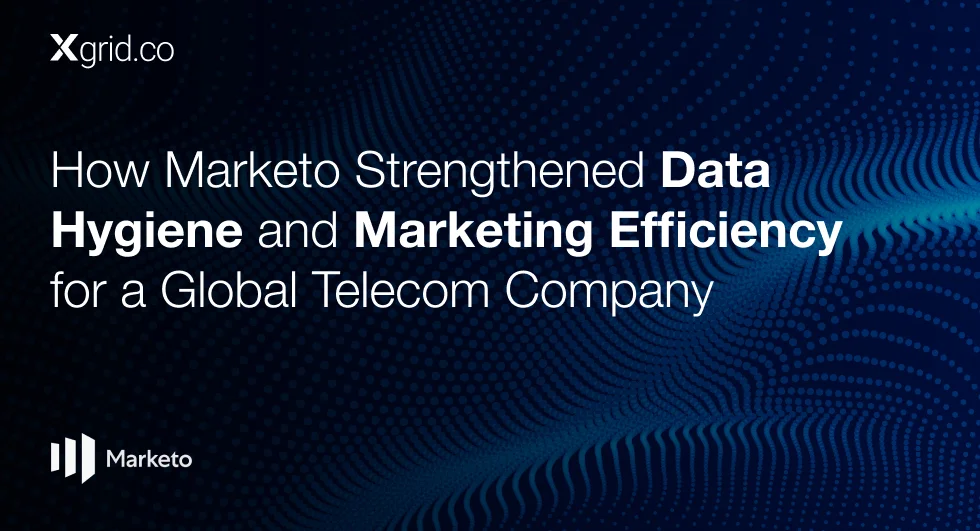Marketo Integration & Marketing Automation: Lauren Aquilino’s Expert Insights
Q: Lauren, could you tell us a bit about your background and your perspective on Marketo? How do you use it, and what value do you see in the platform?
A: My name is Lauren Aquilino. I’m the CEO and co-founder of Emmy Collective. We’re an agency that works exclusively with seasoned consultants and boutique agencies to build elite marketing teams for our clients. I’ve been using Marketo since 2012, beginning at Highland, where I helped implement the platform.
After five years, I moved on to manage the marketing automation team at GE Lighting. In 2017, I started consulting at Revenue Pulse, where I spent four years before taking some time off to focus on my family. Now, as the head of Emmy Collective, I work with consultants who primarily use Marketo for their clients.
Marketo has evolved significantly over the years. What marketers were doing with the system 12 years ago is vastly different from how they use it today, especially regarding integrations. It’s fascinating to see how other tools in the ecosystem now play with Marketo. This evolution has become one of the most interesting aspects of the work our consultants do.
Q: There’s a lot of discussion about the marketing tool ecosystem. Some believe that companies are beginning to cut down on the number of tools they use. What’s your take on integrating tools with Marketo, and how should we approach tool selection?
A: The companies that excel in using Marketo are often those with a limited number of product lines—they aren’t dealing with an overwhelming variety of SKUs. Typically, they also use Salesforce, though Marketo does have good integrations with other systems.
The real strength of Marketo lies in how open its APIs are. This openness is something we find challenging with some of our clients who use HubSpot. With HubSpot, it’s harder to access and manipulate data beyond the platform’s built-in reporting capabilities.
While Marketo has its limitations in reporting, the accessibility of its data through APIs enables reporting outside of the platform. However, companies, particularly SaaS businesses with millions of users, face challenges. It doesn’t make sense to store every single user record in Marketo, as it would bog down the system.
That’s where businesses begin to evaluate what tools they need in addition to or instead of Marketo to manage their large datasets.
Q: When it comes to data hygiene, how should companies handle data within Marketo?
A: Marketo is a strong tool for data hygiene because it gives users significant control to update records through Smart Campaigns or APIs. We joke about not telling people how powerful Marketo is because it allows marketers to do things that users of other platforms, like HubSpot or Pardot, simply cannot.
For example, changing a user’s country might seem like a simple task, but it can trigger compliance requirements that need careful management.
In many organizations, sales or business systems typically handle data management, but Marketo puts that power directly into the hands of marketers. This level of control is one of Marketo’s key strengths.
However, the key to effective data hygiene in Marketo is having a robust data governance plan to archive old records. Cleaning data only becomes problematic when you have bad data. I’d rather have no data than bad data because, once it’s in the system, it’s hard to distinguish between what’s accurate and what’s not.
It’s better to market more generally than to risk sending the wrong message or applying incorrect compliance processing.
Q: You mentioned that Marketo’s reporting capabilities have limitations. Have you used attribution models, and what is your view on them?
A: Yes, I’ve used attribution models, though there are certainly people with more expertise in this area than I do. The challenge is that many people pick a favorite model and rely solely on it.
My approach is to compare different models and extract insights from multiple sources of data. Most of the time, this involves moving into data analysis and collaborating with data science teams outside of Marketo.
I’m not a huge fan of Marketo’s attribution out-of-the-box. I do think Salesforce can handle attribution better in some ways. However, Marketo’s “Programs” object makes it easier to manipulate data and create custom reports.
That said, we recently had an enlightening discussion on our podcast with Jon Miller, one of the pioneers of marketing automation. He stressed that while attribution models are important, they should not be viewed as the ultimate measure of marketing success.
Brand-building still plays a critical role, and sometimes, marketers can become overly fixated on attribution data.
Q: How important is team alignment, particularly between marketing and other teams, when using Marketo?
A: Team alignment is critical, especially in organizations with a high level of technological maturity, like those with SaaS products. At one of our clients, we’re currently working on a project involving multiple teams—business technology, sales operations, data analytics, and data warehousing—just to make a single update in Salesforce. As systems grow and interconnect, it becomes impossible to operate efficiently without alignment across teams.
A recent example is when a client switched out a Marketo form for a standard web form on their website. This seemingly small change broke several processes we had put in place in Marketo, which wasn’t communicated across teams.
Proper change management and alignment are crucial to avoid these kinds of disruptions.
Q: In your view, what aspects of Marketo might become obsolete, and where do you see the platform headed?
A: Marketo is a robust platform that we still recommend to clients. However, we’re seeing some aspects, like lead scoring, moving outside of Marketo. In some cases, scoring is now handled within data warehouses where more comprehensive information is available than what Marketo can store and process.
For one client, we reached a point where sending so much data to Marketo overwhelmed the lead scoring model, causing issues with the sync to Salesforce. To address this, we transitioned lead scoring entirely to the data warehouse, which now updates Marketo.
If Marketo doesn’t evolve its data processing capabilities, this could become a sticking point for users.





